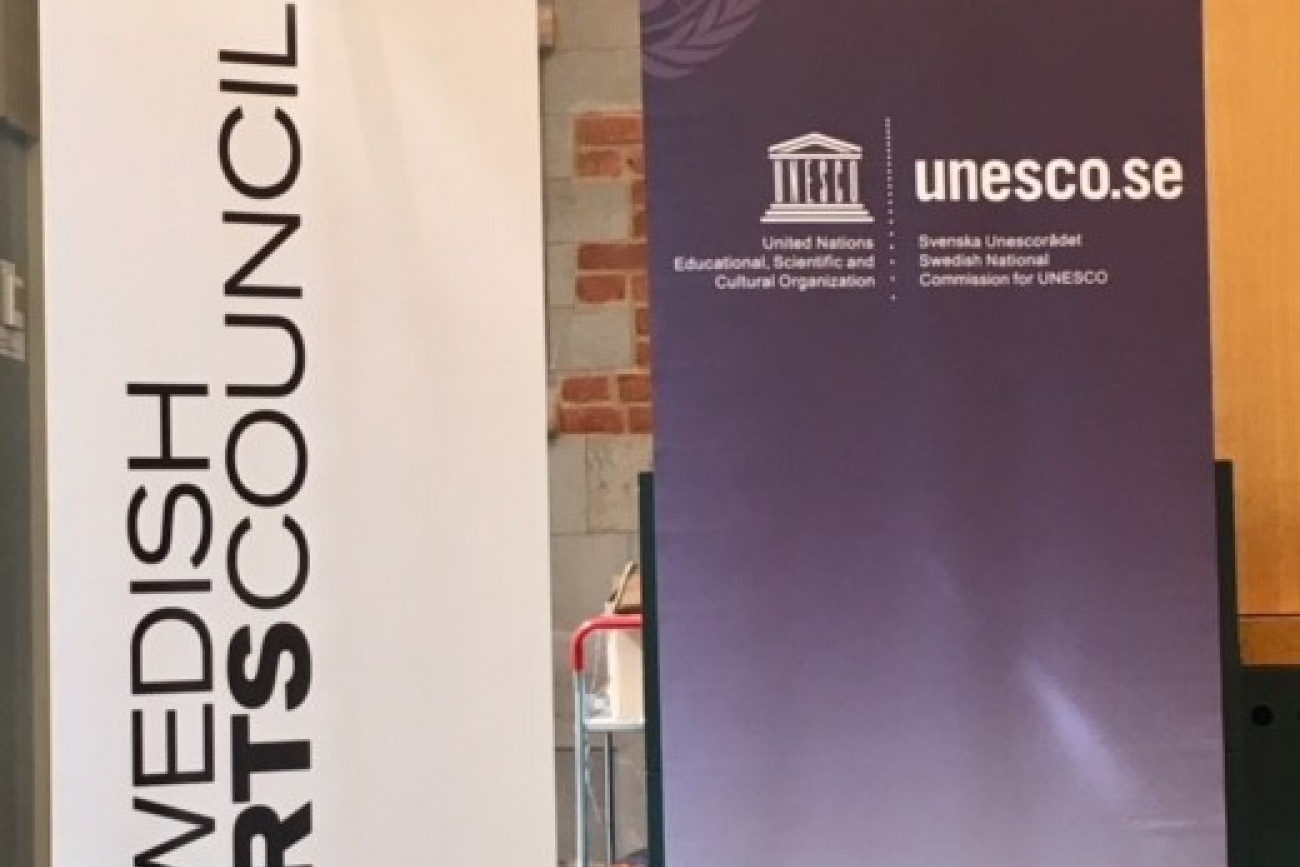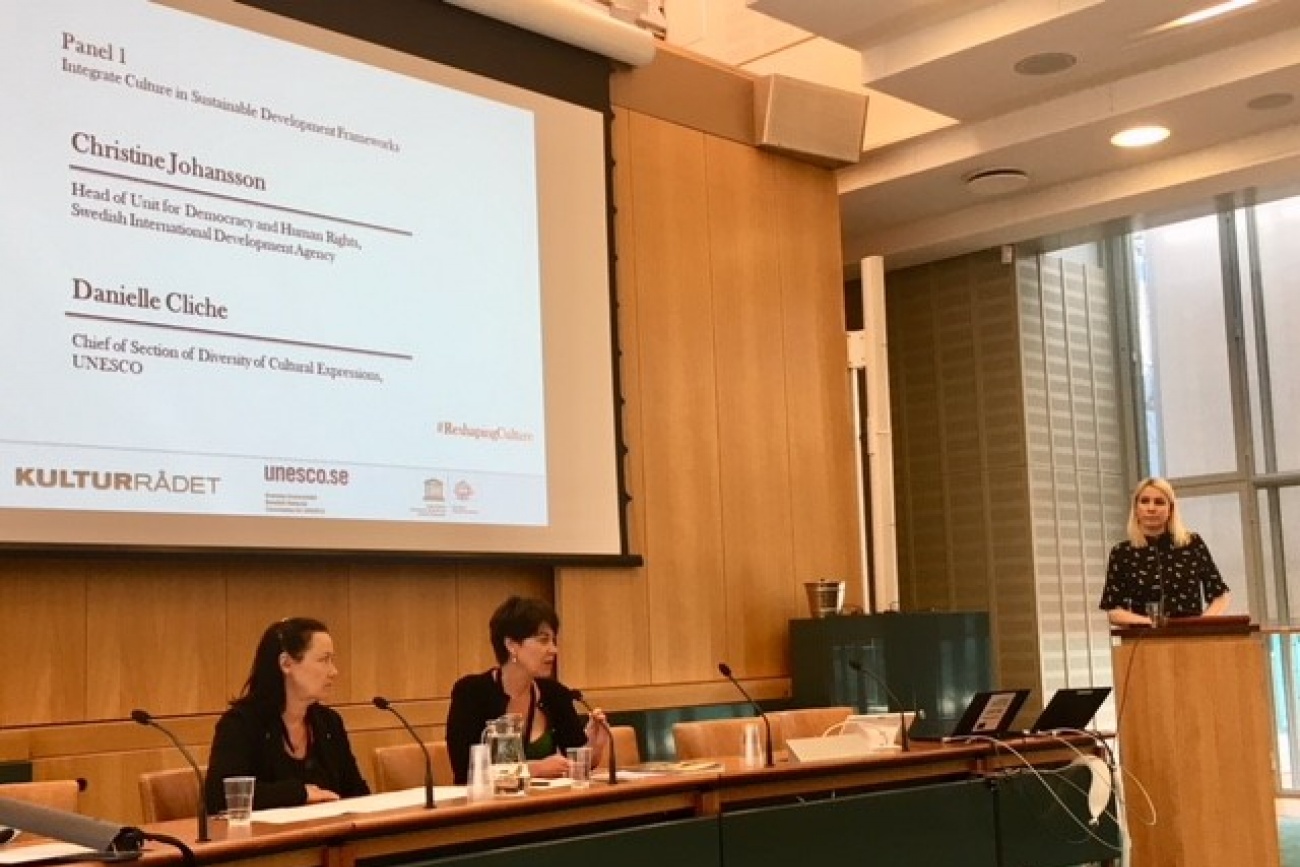Celebrating 20 years of the UNESCO Intergovernmental Conference on Cultural Policies for Development
On 21 May, UNESCO, the Swedish National Commission and the Swedish Arts Council partnered to celebrate 20 years of the landmark Intergovernmental Conference on Cultural Policies for Development held in Stockholm (1998). The event was held in Stockholm and organized on the occasion of the public launch in Sweden of the 2018 edition of the UNESCO’s Global Report “Re|Shaping Cultural Policies”.
The 1998 Stockolm Intergovernmental Conference was the first to result in an Action Plan recognising the importance of integrating human development strategies in cultural policy and international cultural co-operation frameworks and development assistance programmes. The messages emerging from the 1998 Stockholm Conference served as the foundation for the Universal Declaration on Cultural Diversity (2001), and later, for the preparation and adoption of the Convention on the Promotion and Protection of the Diversity of Cultural Expressions (2005).
”Reshaping cultural policies is the world's most comprehensive report on how culture contributes to development and provides a global perspective on how the UN can achieve the 2030 Agenda on Sustainable Development”, emphasized Mats Djurberg, Secretary General of the Swedish National Commission for UNESC0, in his opening remarks.
Reflecting on the advancement of cultural policies for creativity over the last 20 years, Per Olsson Fridh, State Secretary, Swedish Ministry of Culture, highlighted the strong connection between culture and democracy and the need for a rights based approach to cultural policy that directly connects with the Sustainable Development Goals.
“This is especially important in the context of the growing threats to freedom of expression that need to be tackled in both the global North and global South. In Sweden there is still much to do to implement the Convention. This includes building stronger connections between media policy and cultural policy and introducing monitoring mechanisms into the overall cultural policy framework”, he said.
Two panel discussions were organized on this occasion: “Integrating Culture in Sustainable Development Frameworks” and “Promoting Human Rights and Fundamental Freedoms − Artistic Freedom”.
Danielle Cliche, Secretary of the Convention on the Protection and Promotion of the Diversity of Cultural Expressions (UNESCO), presented the main findings of the Global Report. “The 2005 Convention reminds us that a good cultural policy is not necessarily about building flagship institutions but also about providing support for artists through increased international cooperation”, she emphasized. “There are still many challenges to tackle, such as artistic freedom, gender equality and equal access to arts and culture”, she added
Christine Johansson, Head of the Unit for Democracy and Human Rights, Swedish International Development Agency, described the new role of arts and culture within Sweden’s new strategy for human rights, democracy and the rule of law, which emphasizes the importance of artistic freedom, and where artists are identified as actors of change.
Other speakers, including Anna Livion Ingvarsson, Secretary General, Swedish PEN and Srirak Plipat, Director, Freemuse, emphasized the critical role played by non-State actors in the implementation and development of cultural policies. Freemuse’s recent report “The State of Artistic Freedom 2018” is a sobering reminder of numerous attacks, violations and threats – many undocumented – on the freedom of expression of artists, musicians, authors, etc.











